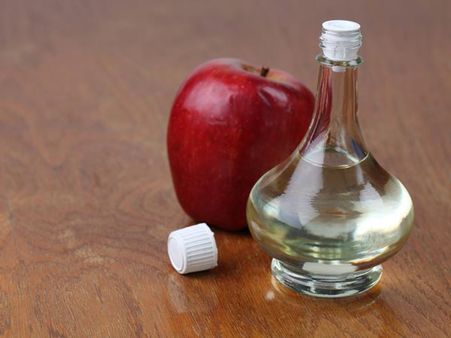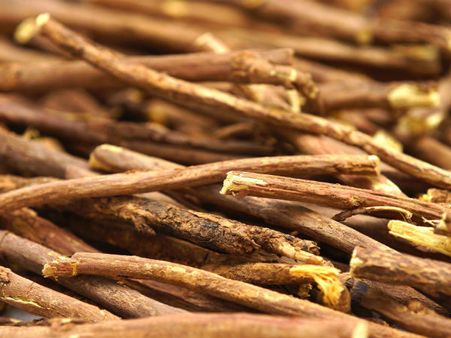Just In
- 45 min ago

- 7 hrs ago

- 8 hrs ago

- 11 hrs ago

Don't Miss
- Movies
 Kiran Rao Had 'A Lot Of Miscarriages', Aamir Khan's Ex Wife Shares Personal & Physical Battles
Kiran Rao Had 'A Lot Of Miscarriages', Aamir Khan's Ex Wife Shares Personal & Physical Battles - Sports
 IPL 2024: Rishabh Pant - The Babysitter! Fans adore Delhi Capitals captain after viral video with Kids
IPL 2024: Rishabh Pant - The Babysitter! Fans adore Delhi Capitals captain after viral video with Kids - Finance
 8 Tata Group Stocks To Buy That Will Pay Dividends Soon, Q4 In Focus; Are You Invested?
8 Tata Group Stocks To Buy That Will Pay Dividends Soon, Q4 In Focus; Are You Invested? - News
 Iran Embassy In Paris Cordoned Off Following Reports Of Suspect With Explosives
Iran Embassy In Paris Cordoned Off Following Reports Of Suspect With Explosives - Automobiles
 Suzuki Swift Hatchback Scores 4 Star Safety Rating At JNCAP – ADAS, New Engine & More
Suzuki Swift Hatchback Scores 4 Star Safety Rating At JNCAP – ADAS, New Engine & More - Education
 NLSIU Announces the Rajiv K. Luthra Foundation Grant
NLSIU Announces the Rajiv K. Luthra Foundation Grant - Technology
 Dell Introduces AI-Powered Laptops and Mobile Workstations for Enterprises in India
Dell Introduces AI-Powered Laptops and Mobile Workstations for Enterprises in India - Travel
 Journey From Delhi To Ooty: Top Transport Options And Attractions
Journey From Delhi To Ooty: Top Transport Options And Attractions
10 Simple Home Remedies for Laryngitis (Hoarse Voice): Number Six Is The Simplest
Laryngitis is a short-term condition in which the larynx or voice box of a person gets inflamed, swollen or irritated causing voice distortion. The condition is characterised by a voice that sounds hoarse, croaky or weak.

Distortion of the voice can be caused due to multiple reasons such as infection (bacterial and viral), cold, flu, excessive alcohol use and acid reflux. Laryngitis also happens when a person uses their voice for too long during singing, cheering or shouting.
Laryngitis generally doesn't require rushing to the hospital and can be treated at home. Take a look at a few simple home remedies used to treat laryngitis. Also, the next time when you get hoarse voice due to singing loudly or cheering for your favourite football game, remember these home remedies, and also suggest them to your friends.


1. Warm Saltwater
Gargling with warm salt water is the simplest and easiest way to treat laryngitis. In a trial study conducted on 387 healthy volunteers, it was found that gargling with salt and water at least thrice a day helps in getting rid of laryngitis or upper respiratory tract infections. [1]
How to use: In a glass of warm water, add around half tsp of salt. Gargle with the mixture and then spit it out. Repeat it thrice a day.

2. Chamomile Tea
Who would ever say no to a warm cup of tea for soothing the inflamed throat? Herbal teas such as chamomile tea are considered the best when it comes to treating any kind of throat inflammations. The abundance of terpenoids and flavonoids in the tea helps in preventing and treating sore throat and hoarseness. [2]
How to use: Prepare chamomile tea by boiling around 1 tbsp of tea chamomile in 1 cup or 8 oz of water. Let the mixture steep for five minutes and then strain. Drink it 2-3 times a day.

3. Ginger
Ginger has very rich phytochemistry with antioxidative and anti-inflammatory been the primary of all. Ginger is known to treat multiple ailments such as digestive problems, degenerative disorders and respiratory disorders. Ginger works effectively against all types of infections which may be the cause behind the sore throat. [3]
How to use: Prepare a ginger tea by boiling it in water. Also, use it in different ways like adding it to meals, juices or smoothies. You can also keep a small ginger piece on one side of your mouth and suck its juice slowly.

4. Eucalyptus Oil
Aromatic oils such as eucalyptus oil exhibit antibacterial, antiviral and anti-inflammatory properties. In a study conducted on 60 patients, it was found that administration of eucalyptus oil helps in improving upper respiratory disorders such as sore throat, hoarseness, pain during talking and loss of voice within three days. [4]
How to use: Pour around 4-5 drops of eucalyptus oil in a bowl of hot water. Cover the head with a towel and inhale the steam. Do it for 10 minutes, twice a day.

5. Garlic
Garlic is among the wonder herbs used commonly for treating common cold symptoms such as throat pain and sore throat. The antimicrobial and anti-inflammatory properties of garlic help to get rid of hoarseness in a short interval. [5]
How to use: Add garlic to most of your meals. You can also keep it in your mouth on one side and suck the juice slowly.

6. Water
Water is considered a cure for many diseases. When you feel inflammation in your throat, drink plenty of water or fluids as it helps in loosening your phlegm and flush out all the mucus. Prefer drinking hot water and avoid caffeinated drinks.
How to use: Drink around 8 glasses of water a day.

7. Vinegar
Vinegar is produced when ethyl alcohol is converted to acetic acid by a genus of acetic acid bacteria, Acetobacter. It has been used since ancient times to fight infections. Its antimicrobial agent wards off multiple infections types that cause cold and cough and responsible for sore throat.
How to use: Add one or two tbsp of white vinegar or apple cider vinegar to a glass of water and gargle with the mixture.

8. Honey And Lemon Juice
Infections related to the upper respiratory tract that involves nose, larynx and pharynx can be cured easily with honey and lemon juice. Both ingredients possess antimicrobial and anti-inflammatory properties. Also, they are enriched with flavonoids and vitamins that help in keeping the immune system strong. [6]
How to use: In 1 tbsp of honey, add 4-5 drops of lemon juice. Don't swallow it but keep it in your throat for a few minutes. Perform it at least two times a day.

9. Steam
Steam inhalation is used as a home remedy for treating hoarseness since ancient times when medical science was not advanced and people rely on herbs and traditional methods to cure their ailments. Steam helps in draining out the congested mucus while the heat destroys the virus that causes it. [7]
How to use: Take a steam bath or hot shower. One can also boil water in a pot and take up its steam by covering the head with a towel.

10. Licorice (Mulethi)
Commonly known as mulethi, licorice is a natural herb that helps treat cough and cold symptoms. In a blind study conducted on 40 adults, it was found that licorica water tend to reduce the cough more compared to normal water. [8] However, one must remember that the herb may interact with certain medications and cause side effects. Consult a doctor before using it.
How to use: Boil around 1 tsp of licorica root in water for 5 minutes. Strain and drink it at least twice a day.

Things To Avoid
- Shouting or singing loudly unnecessarily.
- Drinking alcohol
- Smoking
- Coffee or any caffeine products as they may cause dehydration.
- Whispering, as it may cause more stress on the vocal cord.
- Consumption of recreational drugs like marijuana
- Dusty environment
- Over-the-counter medications without prescription as they may either suppress the phlegm more or cause dry mouth
-
 wellnessUnstable Weather And Heavy Rains Leave Bangaloreans Feeling Feverish With A Sore Throat - Here's Why
wellnessUnstable Weather And Heavy Rains Leave Bangaloreans Feeling Feverish With A Sore Throat - Here's Why -
 disorders cureWhat Is Strep Throat? Causes, Symptoms, Complications, Treatments And Prevention
disorders cureWhat Is Strep Throat? Causes, Symptoms, Complications, Treatments And Prevention -
 healthWaking Up With A Dry Throat At Night? Know What Causes This Serious Condition
healthWaking Up With A Dry Throat At Night? Know What Causes This Serious Condition -
 wellnessThyromegaly: Everything You Need To Know
wellnessThyromegaly: Everything You Need To Know -
 wellnessGum Disease Can Cause This Serious Health Issue, Check It Out!
wellnessGum Disease Can Cause This Serious Health Issue, Check It Out! -
 wellnessReasons Why You Shouldn't Quit Your 'Chewing Gum' Habit
wellnessReasons Why You Shouldn't Quit Your 'Chewing Gum' Habit -
 wellnessCan Oral Intercourse Increase The Risk Of Throat Cancer?
wellnessCan Oral Intercourse Increase The Risk Of Throat Cancer? -
 newsThroat Bacteria Could Be A Sign Of Deadly Joint Infection In Kids - Study
newsThroat Bacteria Could Be A Sign Of Deadly Joint Infection In Kids - Study -
 news11 Diphtheria Cases Reported From Raichur; Major Causes & Symptoms Of Diphtheria
news11 Diphtheria Cases Reported From Raichur; Major Causes & Symptoms Of Diphtheria -
 wellnessThroat Cancer: Causes, Symptoms, Diagnosis & Treatment
wellnessThroat Cancer: Causes, Symptoms, Diagnosis & Treatment -
 disorders cureAyurvedic Tips On How To Get Rid Of Phlegm In The Throat Naturally
disorders cureAyurvedic Tips On How To Get Rid Of Phlegm In The Throat Naturally -
 disorders cureNatural Home Remedies To Get Rid Of Strep Throat Infection Quickly
disorders cureNatural Home Remedies To Get Rid Of Strep Throat Infection Quickly


 Click it and Unblock the Notifications
Click it and Unblock the Notifications





